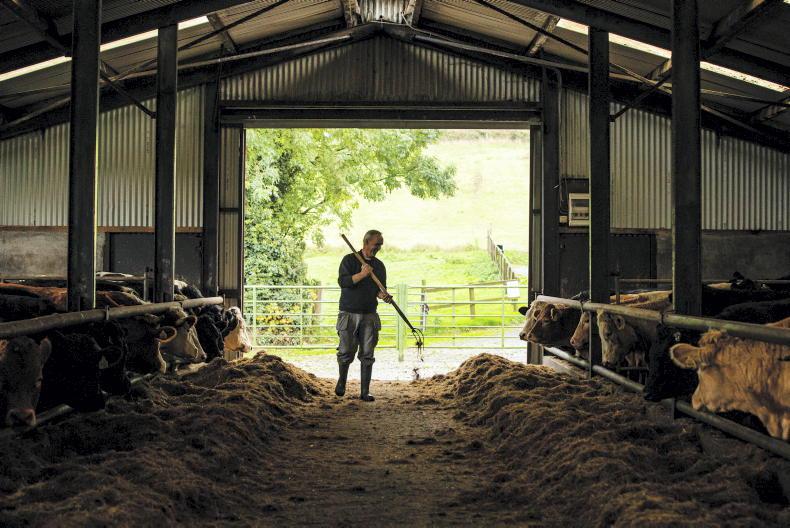The Fair Deal Scheme (FDS) was announced in Ireland in October 2009. A huge step forward for families faced with the cost of nursing home care for their loved ones, it massively eased the financial burden for people.
A new scheme though, it wasn’t without its imperfections, especially for farm families.
In October 2021 – 12 years after the establishment of the scheme – a major announcement was made; one which had been fought for by the Irish Farmers’ Association (IFA) Farm Family & Social Affairs Committee for some time. A three-year cap would be applied on the assessment of farm assets.
Speaking at a recent IFA webinar on the FDS, Ultan Hynes, head of service with the Nursing Homes Support Scheme (NHSS) explained what the new changes practically mean for farming families.
Ultan said: “FDS is a scheme of financial supports to those who are deemed to require long-term residential care. The amount that a person contributes to their nursing home care is calculated based on the value of their assets and income.”
“The assessment takes into consideration a person’s income (which includes their state pension), their savings and assets which includes their property and if applicable, the farm,” he said. “A contribution is then made every month, based on these factors.
“To help with these repayments, Ancillary State Support – a loan – can be applied for. This loan is then paid back – either when the person passes away or if the property is sold before that. In some situations, the repayment can be deferred, but in most situations, repayment of the loan is made when the person’s property is sold after their passing.”
Assessment of the family home
In the calculations, a three-year cap applies to the principal private residences, or the family home. It means that after three years, the house will no longer be factored into the calculations, thereby reducing the amount of money families had to pay weekly as part of their client contribution.
Let’s take an example. Table 1 shows how a couple is assessed when one person has to go into nursing home care.
The calculations based on the principal residence is €72.11 per week, resulting in a total repayment of €276. However, after three years, this is no longer applied, reducing their repayment to €204.
Assessment of the family farm
For many years, there was deep dissatisfaction amongst the farming community, because while they could avail of the three-year cap on the family home, it did not apply to the farm, even though it was an asset that was assessed.
This meant the amount accrued month after month, year after year. Ultan outlines that the average length of stay in which a person avails of the FDS is 3.1 years.
However, that is the average. There are situations where a person, especially someone who may be diagnosed with early-onset Alzheimer’s for example, who – apart from their condition has a healthy body – may be in care for over a decade.
This situation was a significant worry for farming families, especially spouses who were still farming and worried about what would happen to their farm in the long term. As the amounts accrued year after year, they worried if they would have to sell the family farm to fund their weekly charge.
Table 2 really shows the financial impact of the situation.
This example is the same couple, the only difference to their finances is that they have a family farm worth €400,000 which is included in the assessment. The assessment of the family farm adds €288 a week to their calculations, resulting in a total of €564.
Before the introduction of the cap on farming assessments, after three years, the amount owed would only reduce by €72 (the amount assessed on the family home). Now, however, the amount owed is reduced by €360, meaning the weekly amount owed is €204. Even over a one-year period, that is a saving of €18,720. Over a five-year period, it is €93,600.
This is why the announcement of the three-year gap in October 2021 was significant. Now there was a cap, now there was a significant reduction if their loved one lived for five or ten more years. It give farming families more of a financial certainty.
Time to apply
However, this cap is not applied automatically. It must be applied for.
Ultan added: “Since the change in legislation, farming families applying to the FDS will be aware of this three-year cap option.
“Clients who entered the FDS before October 2021 and wish to apply for the three-year cap benefit should submit an application to their local Nursing Home Support Office by using section 7 of the NHSS application form.”
Appointing a successor
As with any new changes to legislations, there are some terms and conditions to grapple with, in this case, the appointment of a farm successor.
IFA Farm Family & Social Affairs chair, Alice Doyle explained: “The change introduced in October 2021 for farmers availing of the scheme means that, under financial assessment of the scheme, if they meet certain conditions, they will contribute up to 7.5% of the value of farm business assets each year towards the cost of care for a maximum of three years.”
Criteria
The conditions to qualify for the three-year cap for farmers are as follows:
You must appoint your family successor.
The successor will commit to running the farm or business for at least six years.
The farm or business must have been actively run by you, your partner or your proposed family successor for at least three of the last five years.
Ultan explained more: “The family successor must continue to farm the land for six years after the appointment in order for the cap to be applied.
“Otherwise, the benefit of the three-year cap cannot continue and benefit received to date may have to be recouped.
“The family successor can be changed in that period. So for example, in the application a son may be appointed as the family successor.
“Two years later, the person in care passes away and it transpires that the farm has been left to a daughter. The name of the family successor can be changed to the daughter, but she must continue to farm the land for the remaining four of the six years in order to satisfy the Fair Deal requirements.”
However, the real issue arose when the farm has to be sold to pay off the FDS amount owed.
One webinar attendant asked: “What happens if the successor is farming the land, but after four years into their six years, the person in the nursing home passes away? The FDS amount has to be paid back within 12 months, but what if €100,000 is owed? There is not enough income to pay off the amount and a bank won’t give a loan for that amount. So the farm has to be sold. Does the cap still apply?”
Ultan Hynes responded: “If Ancillary State Support was claimed on the farm, that amount would have to be repaid.
“However, a feature of the scheme is it may be possible for a further deferral to be granted in respect of the family home if Ancillary State Support was claimed on it.”
Irish Country Living suspects that the campaign of the IFA Farm Family & Social Affairs Committee in regards to the legislation around the FDS is far from over.








SHARING OPTIONS